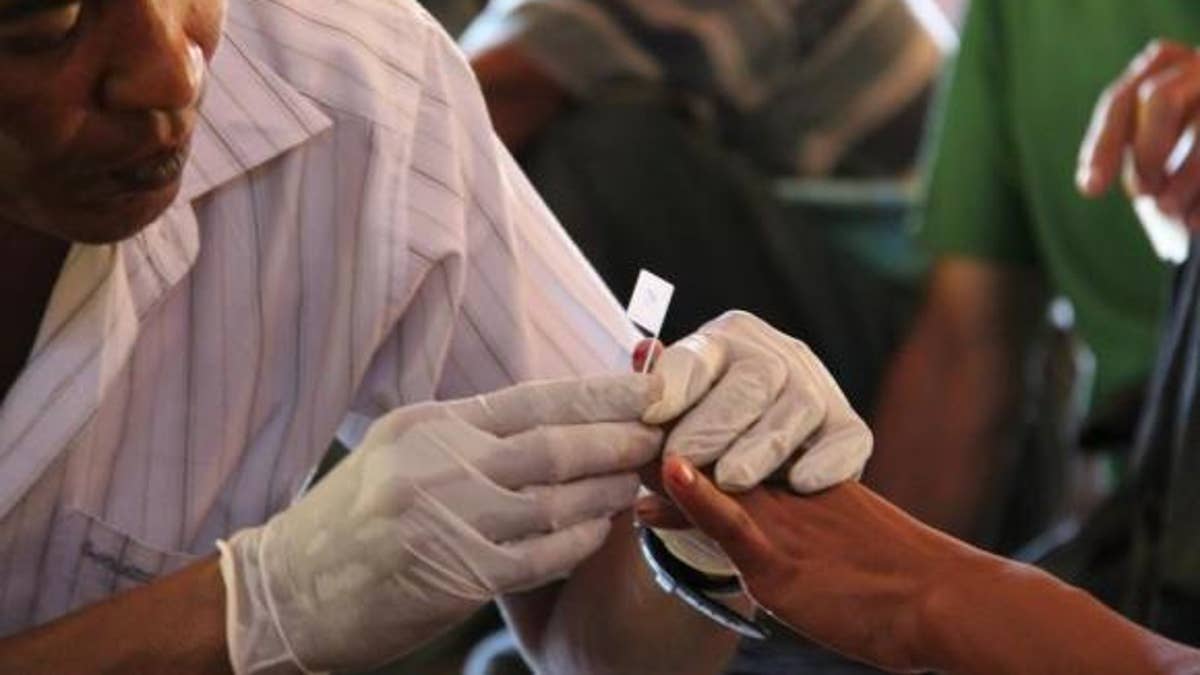
Nov. 28, 2011: A government health worker takes a blood sample to be tested for malaria in Ta Gay Laung village hall in Hpa-An district in Kayin state, south-eastern Myanmar. (REUTERS)
The number of malaria cases worldwide has dropped in recent years but the countries with the biggest outbreaks have made the least progress, according to a new report Tuesday by the World Health Organization.
The vast majority of malaria cases and deaths are in Africa, where countries have achieved "slower-than-average declines" of about 32 percent in the last 15 years, the U.N. health agency said. Elsewhere, cases have dropped by about half. Malaria is a mosquito-borne parasitic disease that mostly strikes children under 5.
WHO estimated there were about 214 million cases of malaria and 438,000 deaths this year but those estimates are based mostly on modeling. The U.N. health agency said data is so bad for 31 countries in Africa — including those believed to have the worst outbreaks — that it couldn't tell if cases have been rising or falling in the last 15 years.
WHO is hoping to wipe out malaria by 2040 despite not having an effective vaccine for it and increasing resistance problems to both drugs and insecticides used to kill mosquitoes.
The world's first malaria vaccine was recommended for approval this year, but it only protects about one-third of children and multiple doses are required. WHO has recommended that more studies be done before deciding how countries should use it.
"This vaccine is not going to be a game-changer," said Jo Lines, a malaria expert at the London School of Hygiene and Tropical Medicine who was not part of WHO's report. He said while "reliable progress" has been made in reducing malaria cases, more attention needs to be focused on controlling mosquitoes.
Lines said the vaccine — which has taken decades of work and cost hundreds of millions of dollars to develop — is about as effective at preventing malaria as a cheap bed net. He said officials should focus more on creating new insecticides.
"Resistance is coming quicker with each new insecticide," he said. "Whether we or the mosquitoes are going to win ... is not yet clear."
